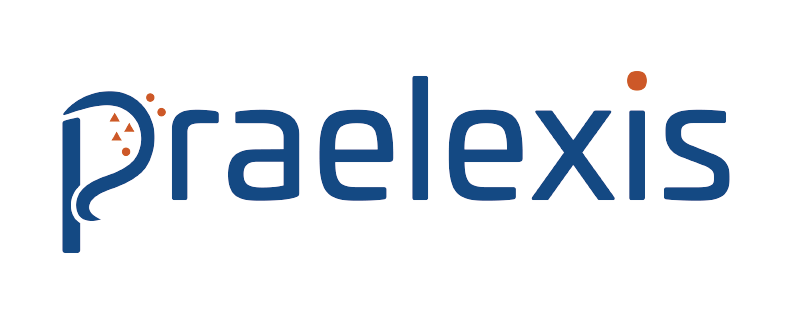As a data scientist working for an innovative company can contribute to your work satisfaction. To make an organisation “more prosperous, generous and sustainable”, Prof Marius Ungerer1, identified five guiding principles to help us imagine what feature-fit organisations look like.* These guiding principles can help you make an informed decision on your next career move. As a data engineer, you want to work for a company that values you as…
- … a skilled individual
- … valuable regardless of your (initial) position in the company
- … a human being
.png?width=624&height=326&name=Blog%20Useful%20Criteria%20Wokrplace%20(3).png)
Key questions to ask yourself:
- Will this company utilise as well as expand my current skill set?
- Will this company include me in the decision-making processes right from the start?
- Will this company value interpersonal connections in a way that promotes my holistic wellness?
Ungerer’s guiding principles were identified through the analysis of different case study organisations. A case study of Praelexis is used to present practical examples of how organisations can implement these principles. This discussion takes place in Ungerer’s book Afro-global Management Innovation Practices (2021) and this blog post is a summary of Ungerer’s analysis and perspective of Praelexis’ organisational culture with a focus on how this helps you make an informed decision about your next career move.
-
How do I know whether the company views me as skilled?
Guiding Principle 1: “Restore and maintain trust in workplaces through an unconditional belief in the virtuousness of people as the basis for empowering others to fulfil their ambitions and inherent potential” 2
This principle is about trust and the time it takes to establish trust between employees. This fosters a safe space where “trusting co-workers is the default means of engagement”3. If a company values you as a skilled individual, they trust you to deliver excellence.
At Praelexis belief in the virtuousness of people is central to the way employees interact with each other. The following has been said by Praelexians:
- “Employees are trusted to perform at their best. Thus, there is no need for supervision and performance management.”
- “It is an amazing work environment if you are serious about doing good work and your team trusts you that you are going to do the right thing.”4
-
How do I know the company values my contribution regardless of my (current) position in the company?
Guiding Principle 2: “Create and maintain workplaces where people feel included and safe to make treasured and valuable contributions.” 5
This principle entails valuing a highly engaged workforce because this ensures high performance. In an organisation that values such a workforce, everyone is allowed to raise their opinion and take interpersonal risks without fear of losing their job or that it might affect their image, status, or career.6 One of the characteristics of a fulfilling workplace environment is a flat structure where everyone has an equal possibility to contribute.
Praelexis has a flat organisational structure and a decentralised team-based organising pattern. This means that as an organisation we are more flexible and we can quickly adapt to respond to changing customer needs and market changes. There is a stronger connection between the crafters and energy is projected towards innovation.7 As such, we deliver the best possible service to our customers. Although our organisational structure might seem unorthodox, we have experience working with all types of client structures and know how to adapt.
-
How do I know whether the company respects me as a human being?
Guiding Principle 3: “Knowledge-centric organisations ensure the availability of an appropriate talent pool mix as part of their competitive advantage.” 8
A talented team is a key competitive advantage for an organisation. For this to be true employees have to take responsibility for their personal development to maintain talent growth. This entails the sharpening of technical skills as well as personal growth.
At Praelexis we focus on appointing skilled engineers and data scientists to keep up with our client's demand. We provide an environment and a community that values growth and development and fosters a culture of continuous self-learning.9
Conclusion
An independent third party has confirmed that we have successfully implemented many of our cultural goals. Afro-global Management Innovation Practices (2021) includes Praelexis’ organisational culture as a case study for identifying the Guiding Principles of a future-fit organisation. When considering your next career move, consider whether the company values its employees as skilled individuals in their own right, regardless of their (current) position in the company structure and as a human being who has to maintain holistic wellness. At Praelexis, we foster trust between employees, have a flat organisational structure that enables flexibility and agility, and we not only hire highly skilled individuals, but we have a culture of continuous self-learning.
What next? Consider Praelexis.
If you are interested in joining the Praelexis team as a crafter of machine learning or data engineer, send your CV to vacancies@praelexis.com or book a meeting.
Source: Ungerer, M. 2021. Afro-global Management Innovation Practices: Re-imagining work and workplaces. SunPress: Stellenbosch.
Illustrations: AI-generated
Image layout: Aletta Simpson
* The five guiding principles are as follows:
1- Restore and maintain trust in workplaces
2- Create and maintain inclusive and safe work environments
3- Ensure a relevant talent pool
4- Focus on doing well (performance) and doing good (sustainable societies and planet)
5- Foster decision-making processes that are data-driven, collaborative, long-term oriented, and fair (Ungerer, 2021:350)
Footnotes: 1. Ungerer (2021:340), 2. Ungerer (2021:340), 3. Ungerer (2021:340), 4. Ungerer (2021:342), 5. Ungerer (2021:343), 6. Ungerer (2021:343), 7. Ungerer (2021:344-345), 8. Ungerer (2021:345), 9. Ungerer (2021:345)



